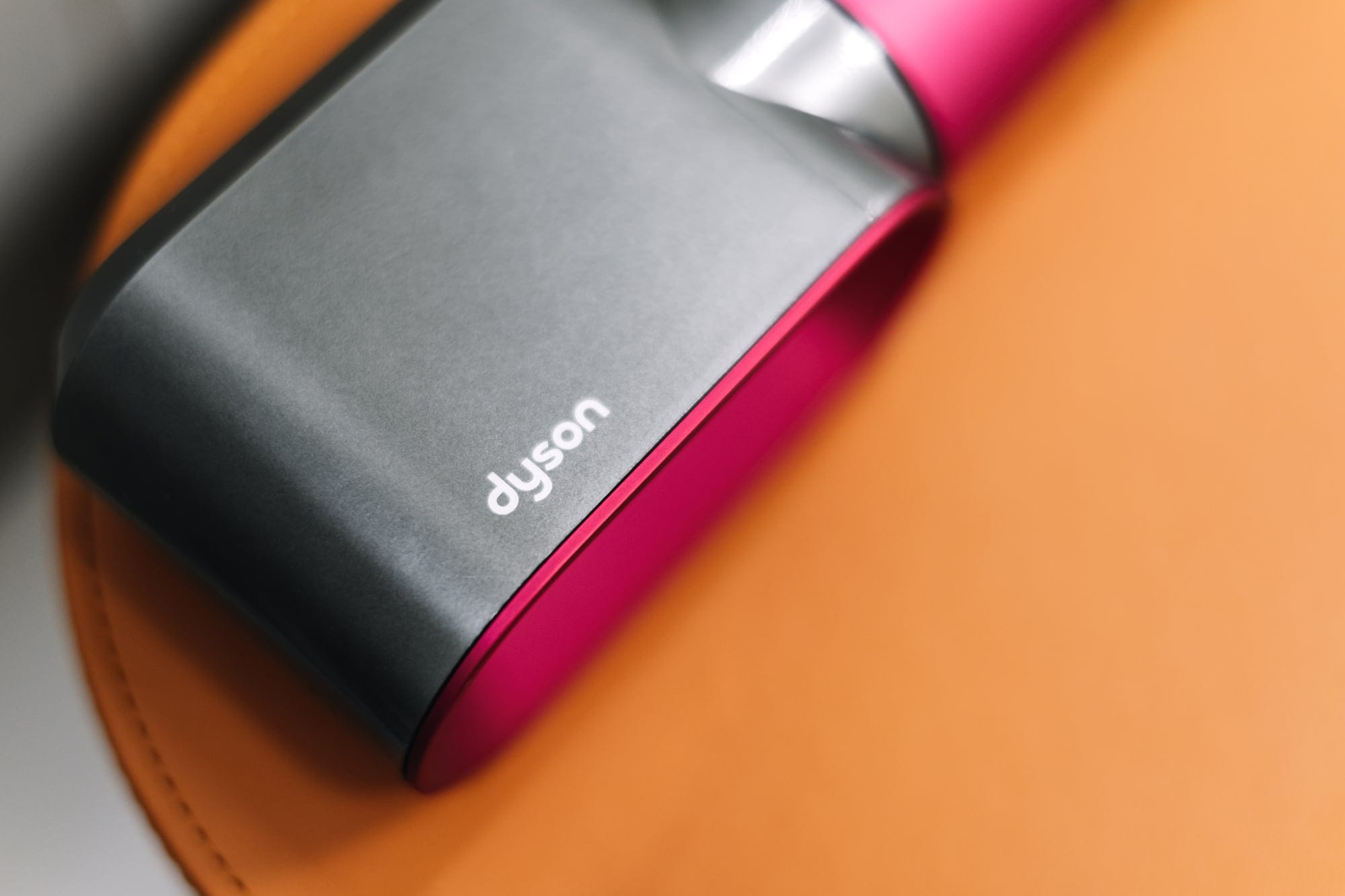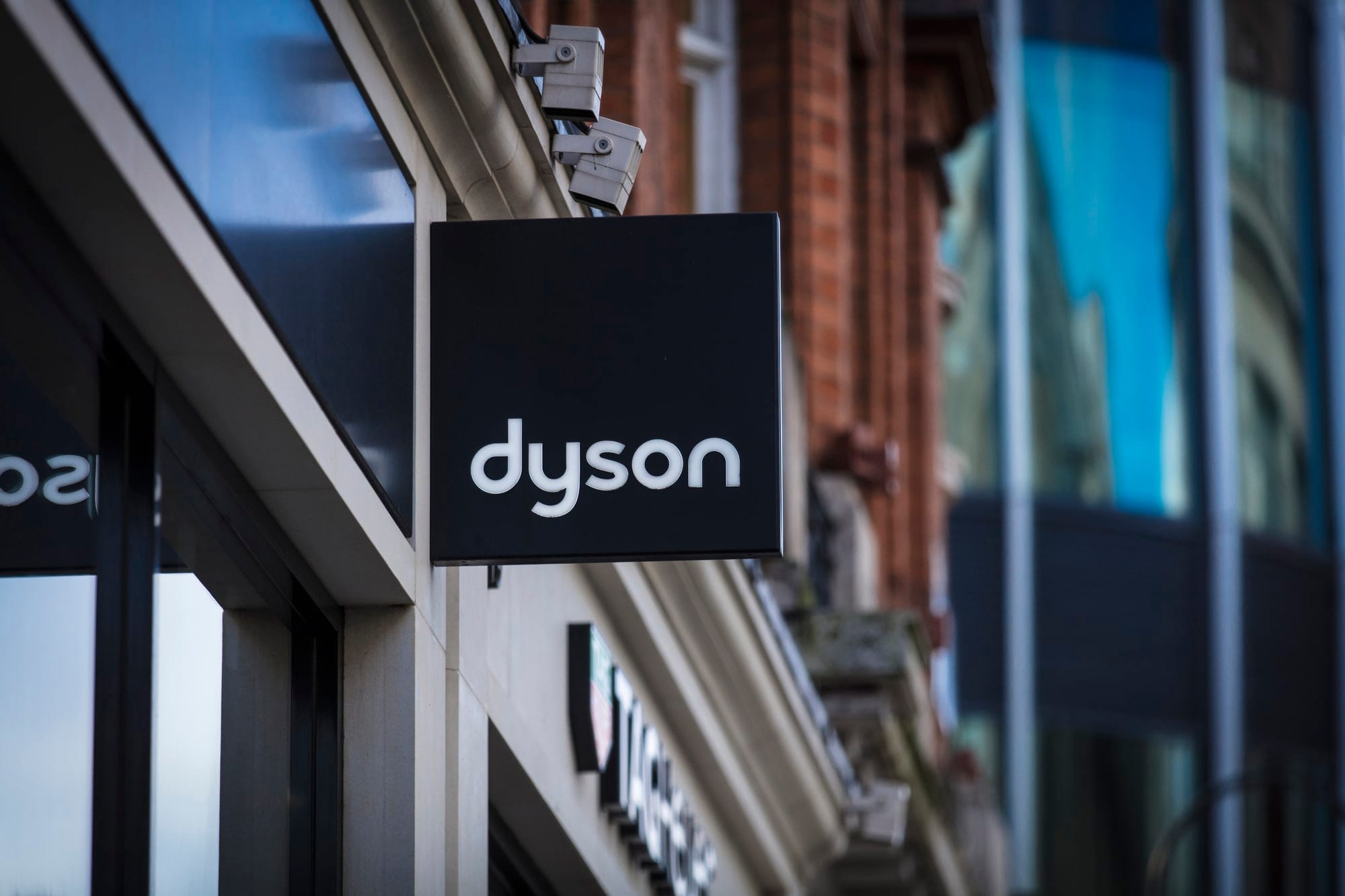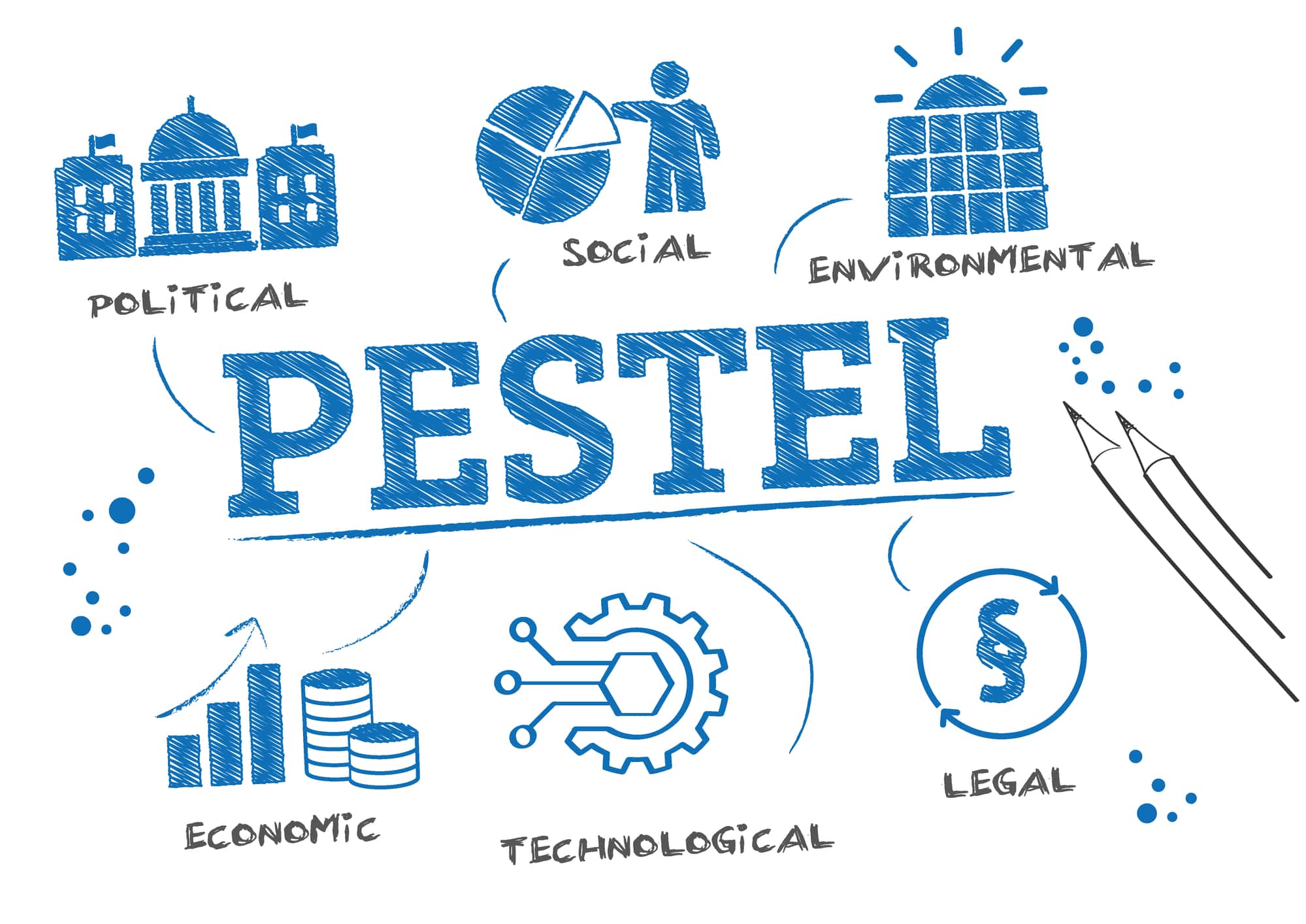We conduct a Dyson PESTLE Analysis to examine the political, economic, social, technological, legal and environmental factors affecting the household brand.
When you think of household appliances for cleaning, hairstyling, air purification, etc., what comes to your mind straight away? Of course, Dyson!
Dyson is a household name for cleaning and other domestic uses. It is one of the largest manufacturers of home appliances.
Can you even imagine your life if we take Dyson out of it? There wouldn't be any quality vacuum cleaners, hair dryers, heaters, and other kitchen appliances.
Since Dyson holds so much significance in the lives of individuals across the globe, today, we have decided to conduct a Dyson PESTLE Analysis.
The purpose of conducting this PESTLE analysis is to make people aware of the insights of Dyson and examine what external factors impact such a great brand.
Before proceeding forward with the PESTLE analysis, let's discuss the history of Dyson, so we get to know the brand a bit.

The company Dyson was established by James Dyson in 1991. This company has a motivational back story of how James worked consistently to develop the first bagless vacuum cleaners.
What pushed James Dyson to develop the bagless vacuum cleaner was his vacuum cleaner, which used to break down frequently since it used to get clogged with dirt.
One day, James decided to fix his vacuum cleaner, removed the vacuum's clogged bag, and replaced it with a cardboard cyclone. The vacuum worked perfectly and collected more dust.
Furthermore, it didn't break down because there was no bag in this modified vacuum cleaner, which would get clogged. This design of bagless vacuum cleaner was licensed by a Japanese company called Apex to develop the modern bagless vacuum called G-force.
The G-force revolutionized the entire vacuum industry. James then established his own company called "Dyson" and began to capture the market for vacuum clears.
People loved the bagless vacuum cleaners since now they didn't have to replace the clogged bags of their vacuums. Dyson's vacuum cleaners became the best-selling vacuums.
Besides establishing Dyson, James also established a center for research in his home country, the UK. Dyson paid much attention to R&D since that was James' vision.
Soon, Dyson expanded its product line and introduced various home appliances and appliances for personal use, such as air purifiers, hair dryers, hand dryers, heaters, bladeless fans, etc.
Dyson became famous globally in no time. The brand expanded its operations internationally. Currently, Dyson operates in more than 80 countries with a workforce of more than 14,000 people.
In 2022, the company generated revenue of £6.5 billion. Dyson keeps investing in R&D to stay aware of modern technologies because innovation keeps Dyson ahead of its competitors.
Now that we have discussed the history and the operations of Dyson in detail let's proceed further and discuss what PESTLE analysis is.
PESTLE analysis is a business technique used to examine what external factors impact different businesses and industries.
In this PEST analysis, we will analyze how different external factors, such as political, economic, legal, technological, social, and environmental factors, will impact the operations of Dyson.
Now that you guys know what PESTLE analysis is let's proceed and conduct the PESTLE analysis of Dyson.
Political Factors That Affect Dyson
Political factors reflect the policies made by the government and the domestic and global political situation in general. Political factors impact businesses significantly. This section will discuss how different political factors affect Dyson.
Government regulations have a great impact on Dyson. Recently, governments have started making policies to ensure that electrical appliances that are being manufactured consume minimum energy.
Due to such policies and government regulations, Dyson must manufacture less energy-consuming products. Moreover, government support also impacts Dyson.
Dyson is one of the companies that pay a lot of attention to R&D. If the government provides subsidies to Dyson or supports the manufacturer in R&D, Dyson can produce quality products.
Besides that, Dyson is a global brand, so people use its products across the globe. In case of trade barriers imposed by the governments, Dyson would suffer since it won't be able to supply its products to some countries then.
Other than that, taxes have an adverse impact on the operations of Dyson. The government imposes taxes to generate revenue. However, if a high rate of tax is imposed on manufacturers, the profit margins of Dyson will be minimized, and the brand will have less money to spend on R&D.
Furthermore, Political stability is also essential to make sure Dyson sells a good amount of products. In case of political instability, people will minimize their consumption. Hence, Dyson won't be able to generate high revenue.

Economic Factors That Affect Dyson
Economic factors account for the macroeconomic variables in an economy. In this section, we will examine how different macroeconomic variables impact Dyson.
The exchange rate impacts Dyson significantly. Dyson imports raw materials and capital to manufacture its products.
Fluctuations in the exchange rate can cause variations in the manufacturing cost of Dyson products, leading to fluctuations in the price of Dyson's products.
Moreover, since Dyson is a global brand, fluctuations in the exchange rate can make the products of Dyson expensive in some markets while cheap in others. This can impact the sales of Dyson significantly.
Besides the exchange rate, economic growth has a great impact on Dyson. In times of economic growth, the disposable income of people increases; hence, in the era of economic growth, the sales of Dyson can increase.
On the contrary, the disposable income of people falls during recessions. This is why the sales of Dyson might fall when there is an economic recession.
Interest rates also impact the operations of Dyson significantly. When the interest rate is high in an economy, borrowing is difficult.
However, when the interest rates are low, it gets easy for companies like Dyson to take loans from banks and invest the money in R&D. By doing so, Dyson can improve the quality of its products and stay ahead of its competitors.
Social Factors That Affect Dyson
Social factors in a PESTLE analysis consider the socio-cultural elements that impact different businesses and industries. In this section, we will examine how different social factors impact Dyson.
Changing trends and consumer preferences are an integral part of a society that impacts Dyson significantly. Along with the awareness regarding global warming, consumer preferences are also changing.
Currently, consumers demand electrical appliances that are eco-friendly and consume minimum electricity. Dyson has to manufacture products in line with consumer preferences, or the consumers might reject Dyson's products.
Moreover, Dyson must also be careful with its marketing campaigns because some advertisements might be considered offensive or unacceptable in some societies.
For example, Suppose Dyson shows men using the vacuum in a society where men don't do household chores. In that case, the brand can face a lot of criticism.
Other than that, Dyson also has to adjust according to the needs of its consumers and make products accordingly. As urbanization is increasing, people are shifting to smaller houses. Hence, people are demanding smaller and multi-purpose home appliances.
Dyson has to fulfill the needs of its consumers. These needs would vary according to each society.

Technological Factors That Affect Dyson
Technological factors refer to the technological advancements and innovations that affect businesses. This section will shed light on how various technological factors impact Dyson.
As social media and internet penetration have increased, a large percentage of the global population has access to the internet and social media. This has allowed Dyson to market its product on social media and increase its sales.
Moreover, with the increasing number of internet users and the existence of the e-commerce industry, Dyson has the opportunity to increase its sales through its online store.
Furthermore, advancements in AI have had a significant impact on Dyson. Dyson can incorporate the latest AI technology into its product to enhance the user experience by adding automatic functionalities.
Besides that, Dyson can use the latest data analytics software to sort out its consumer's data. By doing so, Dyson can categorize its consumers and make informative and effective decisions for targeted audiences.
Other than that, advancements have taken place in the battery industry, due to which the life and storage capacity of batteries have increased. This can motivate Dyson to manufacture more cordless electrical equipment.
Technological advancements like resistors and capacitors have also occurred in the electrical components industry.
The advanced electrical components minimize the power losses and increase the power efficiency. Dyson can use these electrical components to make its appliances more energy efficient.
Legal Factors That Affect Dyson
Every business is impacted by different legal factors. Legal factors are the term used to refer to the legal system and laws present in a country. Let's examine how different legal factors impact Dyson.
Dyson has a large customer base in different parts of the world. The brand has to protect the personal information of its customers. Otherwise, the company can be punished for violating data protection laws.
Moreover, every country has laws to ensure the market stays competitive. Dyson has to abide by these laws and avoid getting involved in anti-competitive practices such as collisions. The government will impose heavy fines on Dyson if the brand violates competition laws.
Besides that, Dyson has a large workforce of over 14,000 people. The brand must abide by the labor protection laws and ensure no unjust or discriminatory practice occurs with the workforce.
Furthermore, Dyson also has the responsibility to abide by environmental laws. To do so, the brand must adopt proper waste disposal techniques. Moreover, Dyson has to manufacture products that have minimum negative externalities towards the environment.
Tax laws also affect Dyson greatly. Dyson has to pay the taxes imposed on the brand at each production stage. If Dyson fails to pay the taxes, the brand can face bans and heavy penalties.

Environmental Factors That Affect Dyson
Environmental factors account for environment-related factors that impact different businesses and industries. This section of the PESTLE analysis will examine how Dyson is impacted by different environmental factors.
In case of natural disasters, the electricity supply often gets disrupted. Due to this, people cannot use Dyson's home appliances that require electricity to function. Hence, the demand for cordless electrical appliances is increasing so that the dependence on electricity is minimized.
This demand of consumers impacts Dyson significantly and pushes Dyson to manufacture cordless appliances that can function on batteries.
Moreover, as people across the globe have become aware of how plastic is harmful to the environment, governments have made laws to ensure manufacturers use minimum plastic and adopt environmentally friendly waste disposal techniques.
Due to the strict scrutiny of government and law enforcement agencies, Dyson is forced to adopt these measures, although the adoption of these environmentally friendly practices would increase the operational cost of Dyson and decrease its profits.

PESTLE Analysis of Dyson: Final Word
Dyson is one of the best-selling vacuum brands. Dyson initially started off by launching the first-ever bagless vacuum. However, the brand evolved over the years and diversified its portfolio.
Besides that, Dyson also expanded its operations internationally. Moved into different markets across the globe to maximize profits.
Currently, Dyson is one of the largest manufacturers of household appliances. The brand has a large workforce that works tirelessly, so Dyson generates billions of pounds of revenue each year.
After discussing the operations of Dyson, we proceeded and conducted the PESTLE analysis of Dyson. The PESTLE analysis framework helped us examine various external factors that have a significant impact on Dyson.
If you found this article interesting, you should also check out the SWOT analysis of Dyson. Moreover, if you are interested in learning more about the PESTLE analysis, here are more examples of PESTLE analysis.


